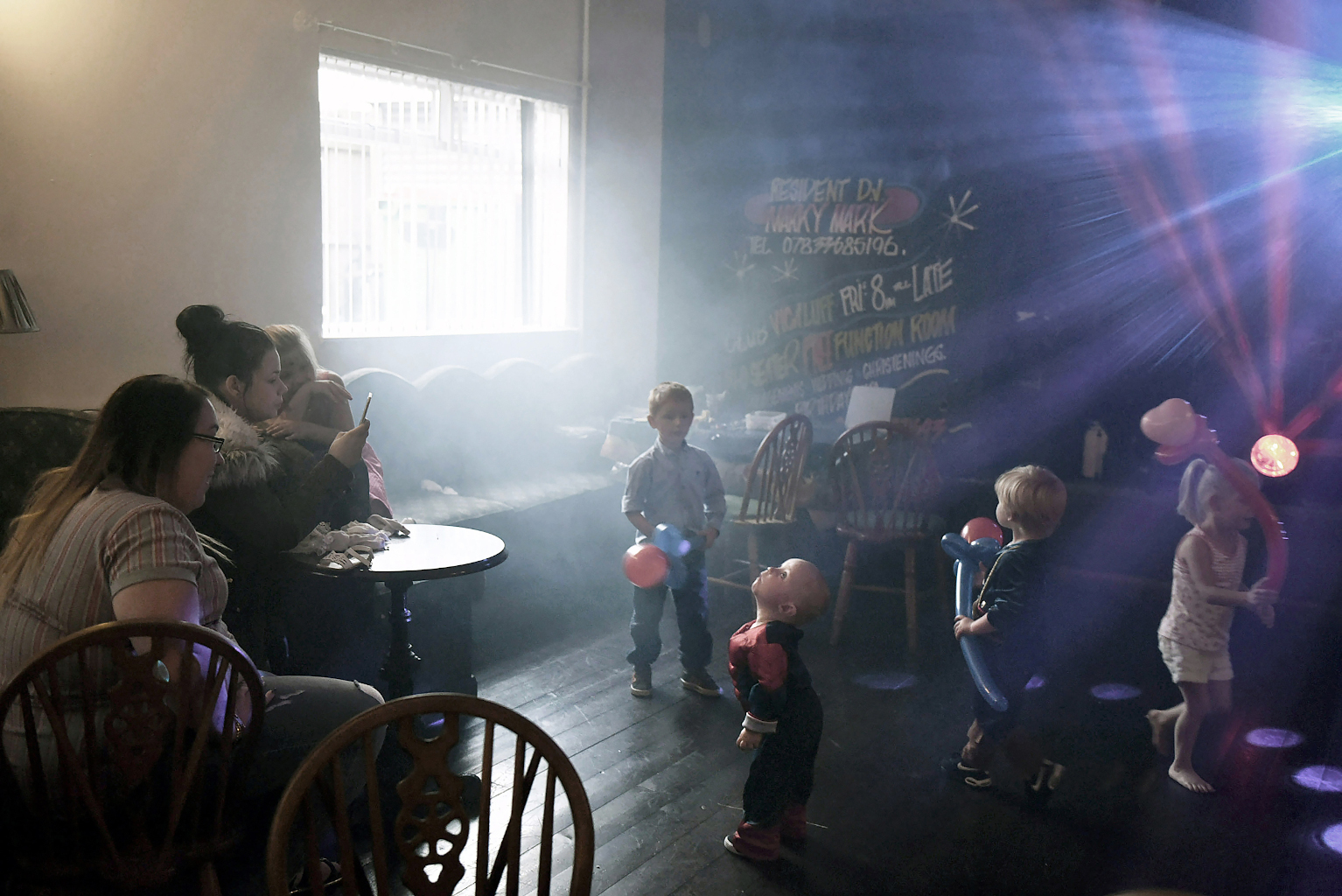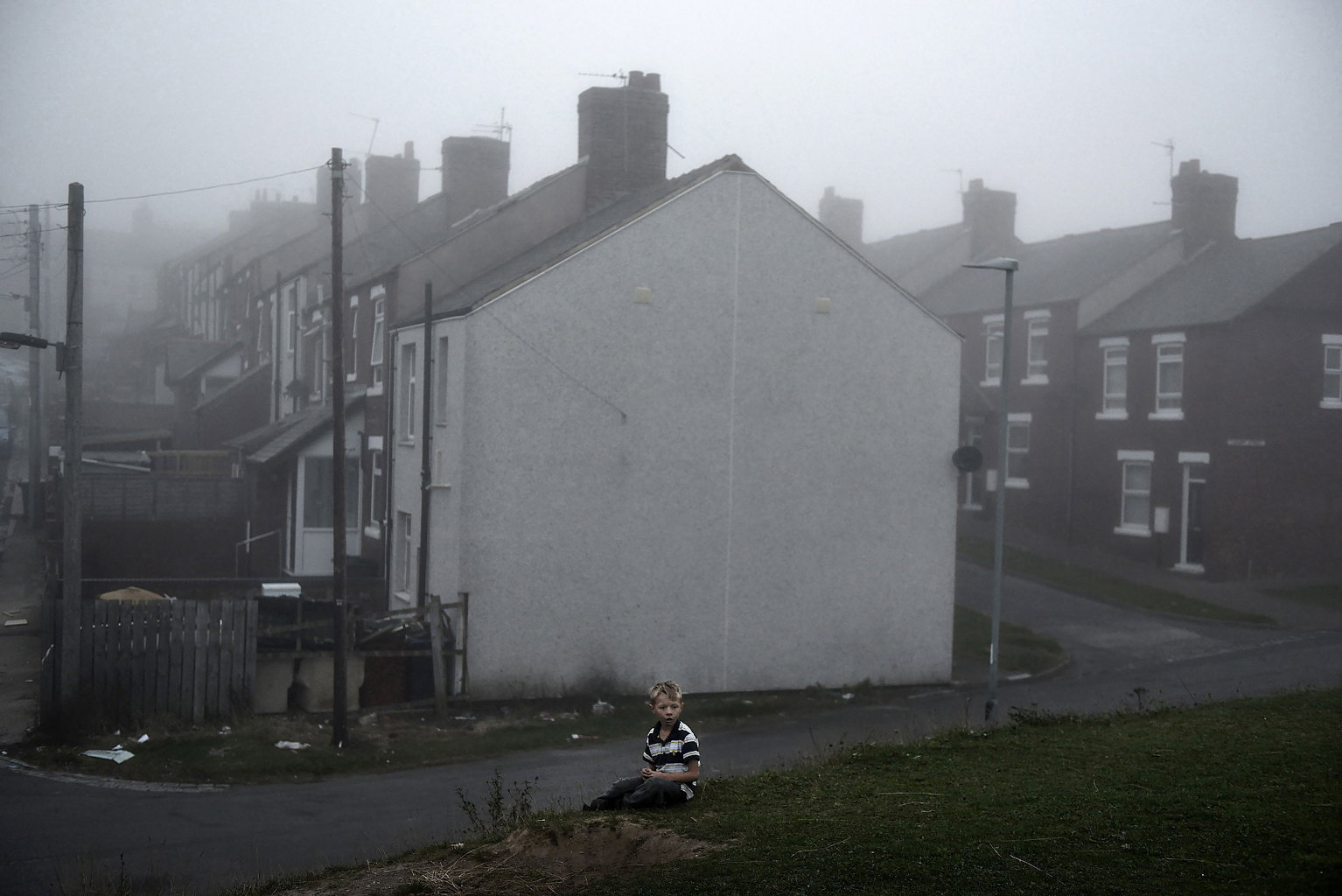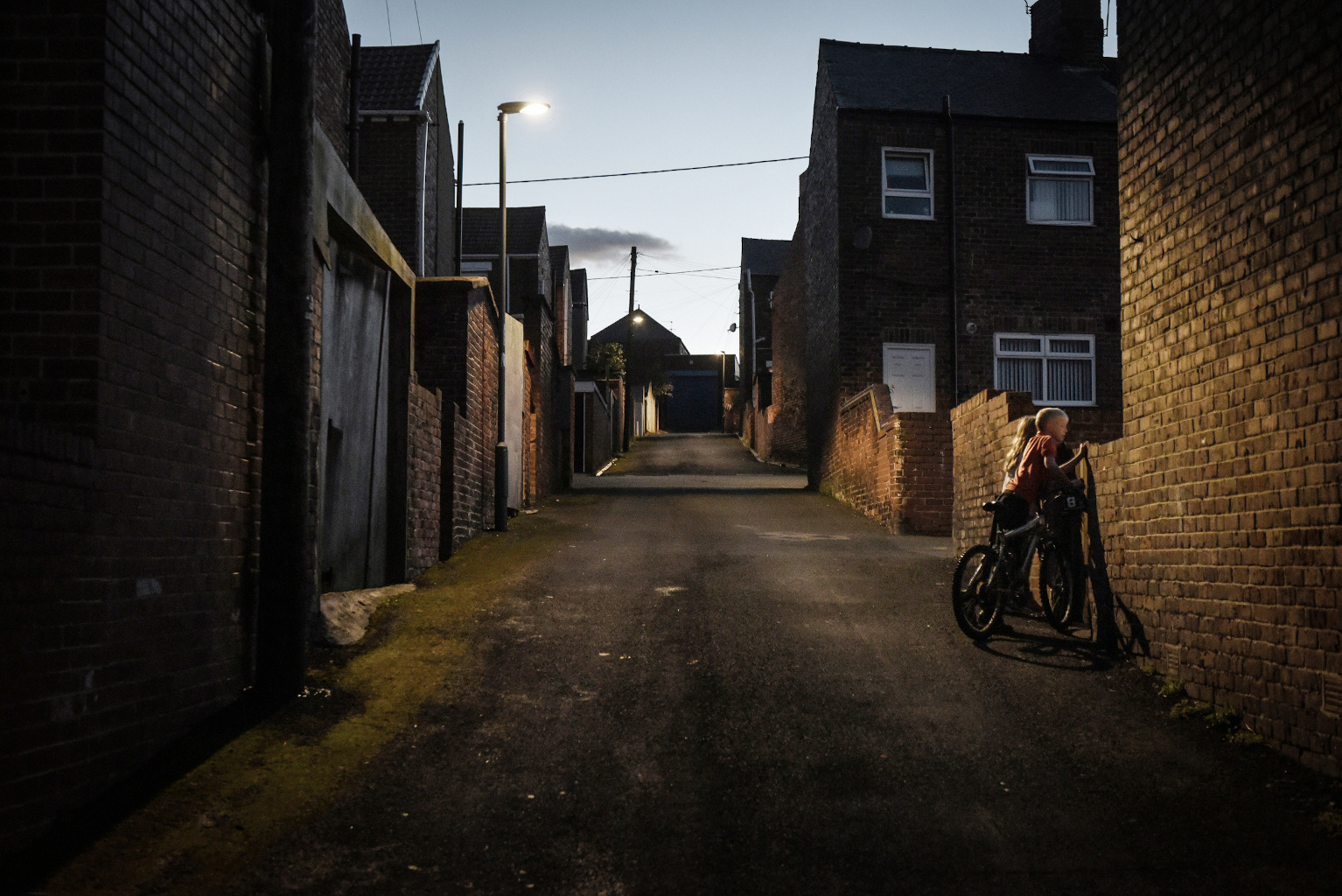For over a hundred years the valleys and hills of the North-East of England reverberated to the sounds of industry, as coal mining brought livelihood to thousands of families. The skylines were dominated by the engine houses and giant wheels of the pits and the streets by hundreds of terraced pit-cottages filled with the families of those that toiled deep below ground.
Over the last forty years, the lucrative but environmentally destructive and ultimately unsustainable mines have been closed down and the communities devastated. Mist rolls in from the sea over boarded-up houses, there is mass unemployment and a feeling of hopelessness. Almost entire communities now live on social welfare benefits. Alcoholism and illness are some of the highest in the UK, education is poor and successive generations of children are growing up with no expectations of work or opportunity. Perhaps the only constant in these fragile communities is love and family, the greatest positive in their lives. As communities died and people were forced to move away looking for work elsewhere, those that were left supported each other often through charity. There are a high number of young parents and many are single parents. But with few jobs and low incomes, it is not easy to bring up families and the cycle of deprivation is repeated.
Now, with the impact of coronavirus across the world, these communities face the prospect of a global recession, with fear. Predictions for the UK have already marked them out as those that will be most affected by a consequential period of economic depression.
This work, started in 2016 and still ongoing, aims to highlight the everyday challenges and beauty of these long forgotten places that were once the UK’s industrial heartlands and now lie almost completely ignored, struggling quietly.
Photo copyright: © Mary Turner / Panos Pictures




